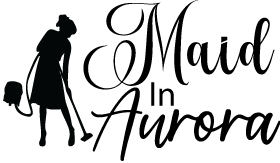
Top 100 Cleaning Questions - Part 9
Eco-Friendly and Natural Cleaning Solutions
What are the most effective natural cleaning ingredients?
Natural cleaning ingredients combine effectiveness with environmental responsibility. White vinegar serves as a primary cleaner for its acidic properties, effectively cutting through grease and mineral deposits. Baking soda works as both cleanser and deodorizer, providing gentle abrasion for tough spots. Lemon juice offers natural antibacterial properties and fresh scent. Castile soap provides general cleaning capability without harsh chemicals. Essential oils like tea tree, lavender, and citrus add antimicrobial properties and pleasant scents. Hydrogen peroxide offers natural disinfecting properties when used properly. Combine ingredients strategically for specific cleaning needs while maintaining surface safety.
How do I make all-purpose natural cleaning solutions?
Creating effective natural cleaning solutions requires proper ingredient ratios and mixing methods. Basic all-purpose cleaner combines equal parts water and white vinegar, with optional essential oils for scent. For stronger cleaning needs, mix one cup water, one cup vinegar, and two tablespoons of baking soda in a spray bottle. Create glass cleaner using one part water, one part vinegar, and a small amount of cornstarch for streak-free results. Mix natural floor cleaner using warm water, vinegar, and a few drops of essential oil. Store solutions in clearly labeled dark glass bottles, noting mixing date and ingredients used.
What's the best way to naturally deodorize different areas?
Natural deodorizing combines elimination of odor sources with natural freshening methods. Use baking soda as base deodorizer for carpets, upholstery, and trash bins. Create room fresheners using essential oils in diffusers or spray bottles with distilled water. Simmer citrus peels and herbs for natural air freshening. Place activated charcoal in humid areas to absorb odors and moisture. Use vinegar solutions to neutralize pet odors and cooking smells. Maintain proper ventilation to prevent odor buildup. Replace commercial air fresheners with natural alternatives like dried herbs and essential oil sachets.
How can I replace commercial cleaners with natural alternatives?
Natural cleaner replacement requires understanding specific cleaning needs and appropriate substitutions. Replace bathroom cleaners with a paste of baking soda and water for scrubbing, and vinegar solutions for disinfecting. Substitute window cleaners with a mixture of vinegar, water, and cornstarch. Create natural furniture polish using olive oil and lemon juice. Replace commercial floor cleaners with appropriate natural solutions based on floor type. Use oxygen bleach instead of chlorine bleach for whitening and stain removal. Develop cleaning rotation systems using natural products to prevent buildup. Test all natural alternatives on small areas first to ensure surface compatibility.
What natural methods work best for stain removal?
Natural stain removal combines prompt action with appropriate natural solutions. For food stains, create a paste with water and baking soda, applying directly to the stain. Use white vinegar for mineral deposit and hard water stains. Address wine stains with salt and club soda combination. Remove grease stains using cornstarch or baking soda to absorb excess oil before cleaning. Create enzyme cleaners using citrus peels fermented in vinegar for organic stains. Use hydrogen peroxide and baking soda mixture for tough bathroom stains. Always test stain removers on inconspicuous areas first and consider fabric or surface type when selecting natural solutions.
How do I make natural disinfectants that actually work?
Natural disinfection requires understanding antimicrobial properties of natural ingredients. Create effective disinfectant by combining equal parts water and white vinegar with tea tree oil. Use undiluted white vinegar for maximum disinfecting power on appropriate surfaces. Combine hydrogen peroxide and vinegar (applied separately, never mixed) for enhanced germ-killing power. Create citrus-based disinfectant by infusing vinegar with citrus peels for several weeks. Use hot water above 170°F for natural sanitizing where appropriate. Understand limitations of natural disinfectants and when commercial products might be necessary for specific situations.
What are the best eco-friendly laundry practices?
Eco-friendly laundry combines natural cleaning solutions with energy-efficient practices. Create natural laundry detergent using grated castile soap, washing soda, and borax. Use vinegar as natural fabric softener and odor eliminator. Implement cold water washing when possible to save energy. Line dry clothes when weather permits or use energy-efficient dryer settings. Create stain pre-treatment solutions using baking soda paste or hydrogen peroxide. Use wool dryer balls instead of disposable sheets. Sort laundry effectively to optimize load size and cleaning effectiveness. Consider installing water-efficient washing machines and using concentrated natural detergents to reduce packaging waste.
How can I naturally clean and maintain wood surfaces?
Natural wood cleaning requires gentle approaches that protect wood finishes. Create wood cleaner using equal parts olive oil and vinegar for regular maintenance. Use lemon oil and beeswax mixture for natural polish and protection. Address water rings with mayonnaise or a paste of baking soda and water. Clean unfinished wood with diluted castile soap solution. Use vinegar solutions carefully on wood, always testing first and avoiding oversaturation. Create furniture polish using olive oil and essential oils for added protection and pleasant scent. Maintain regular dusting schedule using microfiber cloths to prevent buildup requiring stronger cleaners.
What natural pest control methods work with cleaning routines?
Natural pest control integrates preventive cleaning with non-toxic deterrents. Use diatomaceous earth in crack and crevice cleaning for insect control. Create natural ant deterrent using vinegar and essential oils in cleaning solutions. Implement borax-based cleaning treatments for cockroach prevention. Use cedar oil in cleaning solutions for natural moth prevention in closets and storage areas. Maintain regular cleaning schedules focusing on food debris and moisture control. Create natural pest barriers using appropriate essential oils and natural substances. Consider companion planting near entrances to naturally deter pests.
How do I transition a whole house to natural cleaning methods?
Whole-house natural cleaning transition requires systematic approach and patience. Begin by inventorying current cleaning products and identifying natural replacements. Create starter set of basic natural cleaning solutions using vinegar, baking soda, and essential oils. Implement room-by-room transition schedule to manage change effectively. Document successful natural cleaning combinations and techniques for future reference. Establish storage systems for natural cleaning supplies and ingredients. Create cleaning schedules incorporating natural method requirements. Monitor results and adjust solutions as needed. Maintain separate tools for different natural cleaning applications to prevent cross-contamination.

6105 S Main St, Aurora, CO 80016, United States of America
All Rights Reserved | Maid In Aurora
